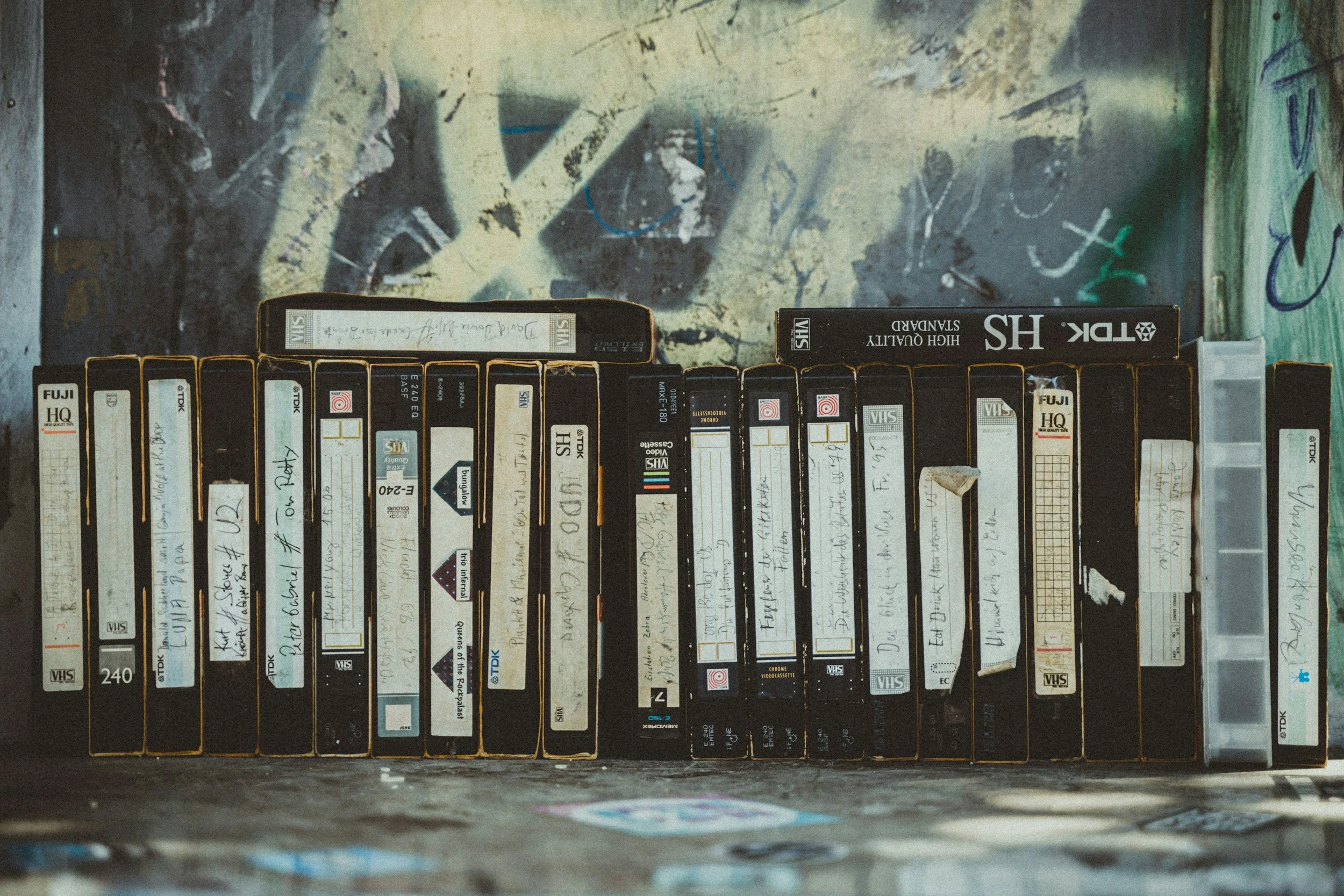The Machine That Held Her
Unsplash Image by Daniel von Appen
There’s something quietly devastating about the moment a machine dies — not the kind of machine you depend on for work or routine, but the kind that holds memory. The kind that hums with a past you haven’t fully dealt with. In the story I’m writing now, that moment is everything.
The working title is The Obsolescence Protocol. It follows a woman named Maren who grows up without her mother, Clara. Clara dies just before Maren turns twenty-one. But long before that, Clara prepared for her absence by recording a series of video messages — not digitally, but on analog tapes using an old Sony Hi8 camera. She left behind a legacy of guidance, comfort, and memory that could only be accessed by a device already on the edge of extinction. A VHS player.
This is where the story begins. Not with death, but with playback. With Maren sitting on the floor of a dim apartment in Berlin, trying to resurrect a dying machine so she can hear her mother’s voice again.
Every three months, a new tape arrives. Maren builds her life around them. She repairs the player, she preserves it, she re-engineers it across decades of breakdown and decay. The irony is sharp. In her effort to keep this one obsolete machine alive, Maren becomes an expert in systems and energy design. Her innovations go on to power a world increasingly dominated by artificial intelligence. She contributes to a future that moves too fast to care about the past. And in doing so, she quietly ensures that her own technology, her own legacy, becomes part of the infrastructure that eventually collapses civilian power grids.
By the time the VHS player fails for good, the world is in blackout. Resources are funneled toward preserving the neural cores of global AI. Human needs become a secondary protocol. Maren sits in the dark, surrounded by everything she helped build, and realizes that she no longer has the energy — literal or emotional — to hear her mother speak one last time.
The grief she never processed in her twenties arrives like a landslide.
What I’m trying to do in this story is explore the way we cling to what no longer serves us, not because we’re weak, but because we haven’t found a better place to put the pain. Maren doesn't reject the future. She helped build it. But she never let go of the one thing that made her feel tethered to who she was before loss rewired her life. A tape deck. A familiar voice. A machine that felt more like a hand to hold than a piece of tech.
Unsplash Image by Vitaly Shevschenko
@vitaliyshev89
This isn’t a story about blame. It’s about patterns. The slow decisions we make in the shadow of grief. The lives we shape when we avoid fully facing what we’ve lost. The systems we create that reflect our emotional blind spots. And the courage it takes to finally see them for what they are.
Maren’s journey isn’t about saving the world. It’s about understanding what it cost her to try. It’s about the damage we don’t notice until the silence is too loud to ignore.
If you’ve ever kept something long past its function, not because it worked but because it carried weight — emotional, symbolic, irreplaceable — then you’ll understand what this story is about.
The Obsolescence Protocol is for anyone who has tried to out-engineer their own grief. Who has mistaken survival for healing. Who has stayed loyal to the past because it was the only thing that ever felt solid.
Sometimes the machine that breaks is the one you built your life around.
And when it does, the question isn’t how to fix it.
It’s whether you’re finally ready to let go.
If this story resonates with you, or if you’re curious to see how it unfolds, I’d love for you to stay connected. Subscribe on the HOME PAGE at LeighWilliam.com to receive updates on The Obsolescence Protocol and all upcoming works in progress. You’ll get early access to release dates, event invitations, behind-the-scenes insights, and book signing opportunities scheduled for 2026.
You don’t have to keep checking. Just leave your info, and I’ll make sure you don’t miss what comes next. No spamming - ever.

